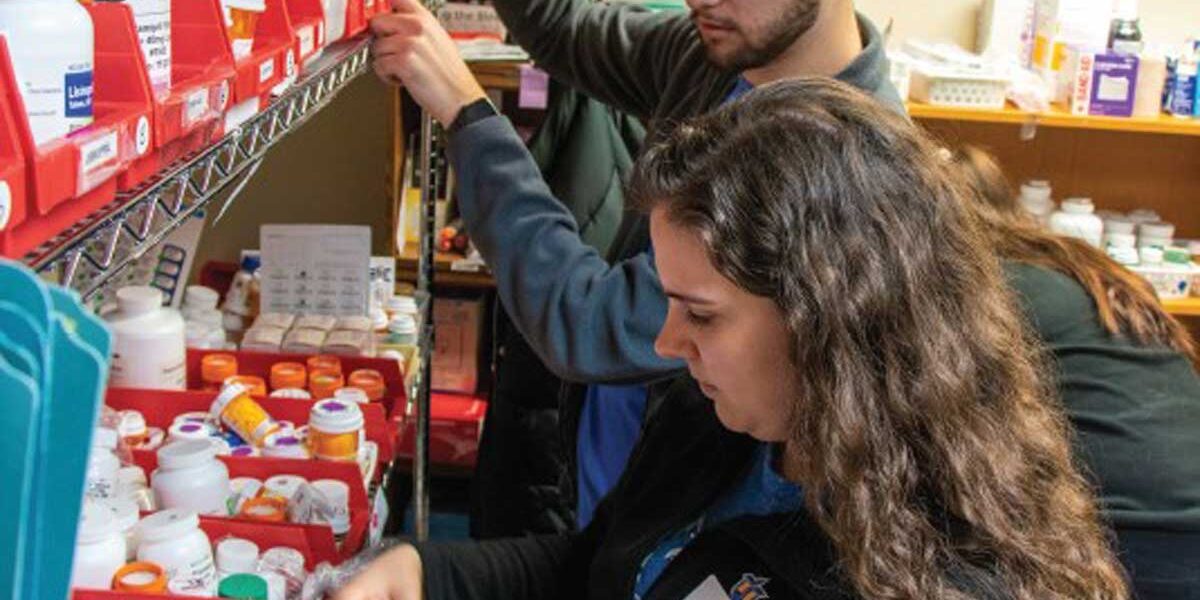BY: Kali Thiel, Strategic Communications
Classroom learning is essential, but some lessons are more profound when experienced firsthand. It’s a main reason why Associate Professor of Pharmacy James Lokken, PharmD, commits several of his “off days” each academic year to student-learning opportunities at City on a Hill. Founded in 2001, City on a Hill is a faith-based nonprofit located in Milwaukee. Its mission is to break the cycle of generational poverty in Milwaukee through training, education, and resource allocation.
About once a month, Lokken oversees onsite Saturday workdays for CUW students. The workdays allow CUW pharmacy students to fulfill course requirements or simply volunteer. The students have helped with a variety of programs over the years: an “ask a pharmacist” station, vaccine clinics, smoking cessation workshops, health screenings, and more.
The experience often stretches students to apply knowledge in new ways, said Lokken. For example, City on a Hill maintains a “med room” full of slightly expired or discarded medications. The medications are still safe for use—and for an uninsured, low-income population they fit the price tag—but prescribing them requires an extra-diligent eye from a licensed pharmacist. That’s where Lokken can help. CUW students play a role in meticulously inventorying the supply so that pharmacists like Lokken can assess their efficacy.
“That’s one of the beautiful aspects of our work at City on a Hill: It teaches students how to function in a resource-poor environment,” Lokken said.
City on a Hill also helps instill a core virtue of Concordia’s School of Pharmacy: servant leadership.
“It puts a whole new perspective on how we can use our God-given time, talents, and treasures to help those who need it most,” Lokken said. “There are so many opportunities to help if we just take the initiative to do so.”

